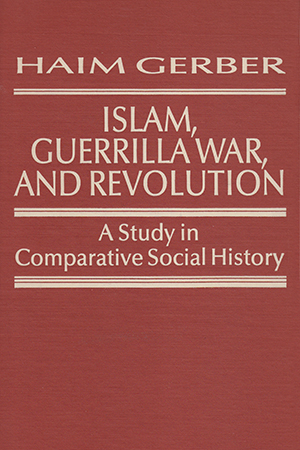
- 1988/216 pages
Islam, Guerrilla War, and Revolution:
A Study in Comparative Social History
Gerber first investigates the 1944 Marxist revolution in Albania and the 1967-1969 Marxist revolution in South Yemen. He finds, in conformity with the sociological theory of revolution, that these two revolutions were due not to the sway of ideologies nor to the extraordinary abilities of leaders, but to objective circumstances that were beyond the control of any individual.
The theory he builds to explain the cases of Albania and South Yemen is then tested in several other cases—notably that of the Algerian war of independence (1954-1962)—leading to the conclusion that Islam per se has little to do with the revolutionary potential of social movements. To corroborate this conclusion in a more direct manner, he dwells at some length on the anti-Communist Afghan resistance dating from 1979. Contrary to widespread views, Gerber finds that Afghanistan's guerrilla movement can not be seen as a specifically Muslim resistance. His more general conclusion is that the tools of social history can, indeed, be applied cross-nationally.





